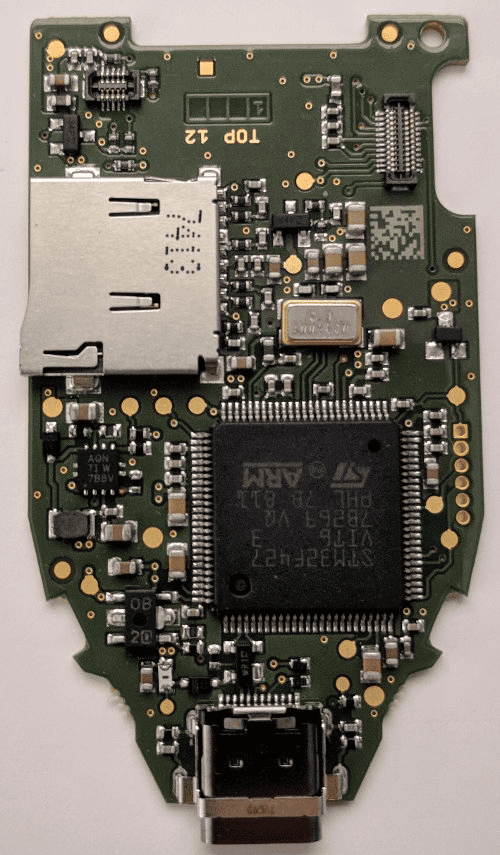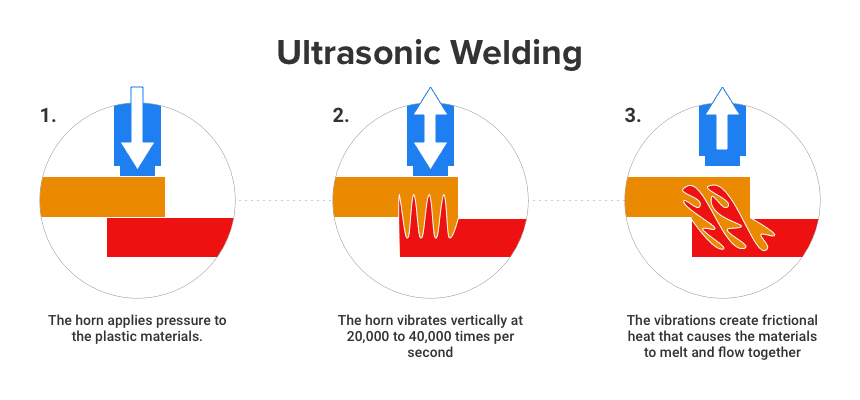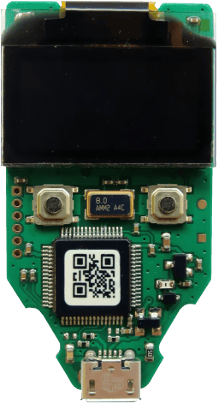Trezor hardware: built-in security
This article presents a detailed overview of the hardware specifications of all Trezor hardware wallets.
Trezor Safe 7
The casing, dimensions, and material
The Trezor Safe 7 measures 75.4x44.5x8.3 mm (2.97x1.75x0.33 in) and weighs 45 g (1.6 oz). The body is an anodized aluminum unibody with Gorilla® Glass 3 display, a NCVM coated glass backplate, and IP67 rated protection.
IP67 rated protection means the device is fully dust-proof and highly resistant to water immersion.
Connectivity
The Trezor Safe 7 supports both USB‑C and Bluetooth connections. Bluetooth provides secure pairing with Bluetooth 5.0+ devices, and the wallet can also operate as a wired device over USB‑C.
Wireless charging is supported via Qi2 compatible charging, and a built in LiFePO₄ battery powers the wallet between charges. Both Bluetooth and USB‑C connections are secured with Trezor Host Protocol (THP), which encrypts device commands and transactions.
Hardware components
- CPU: high-performance STM32U5G ARM Cortex M33 processor (160MHz).
- Screen: the 2.5" high resolution color touchscreen (520 x 380 pixels) is protected by Gorilla® Glass 3 and includes haptic feedback.
- It provides enough space to review transaction details with clearer readability.
- The touchscreen is used for on-device PIN entry and confirming all actions.
- Secure Elements: the device uses two Secure Elements: OPTIGA Trust M (V3) and TROPIC01. Read more in our article Dual Secure Elements in Trezor Safe 7.
- TROPIC01 is an open, auditable secure element developed by Tropic Square, a SatoshiLabs company.
- Power: a LiFePO₄ battery (3.2V, 330mAh) enables wireless use, with Qi2 compatible wireless charging support.
Operating conditions and care
Trezor Safe 7 reliably operates in temperatures ranging from 0°C to +45°C (32°F to +113°F).
Do not attempt to force open or disassemble the case. Do not expose your Trezor device to extreme temperatures, fire, vapors, humidity, or chemicals. The device is designed for durability, but it is not unbreakable.
Safety and certifications
- Trezor Safe 7 is certified under CE, RoHS, REACH, WEEE, and additional EMC and wireless compliance standards listed by Trezor. Read more about this in our article Trezor Safe 7 certificates.
- X-Rays will not harm your device, making it safe for air travel.
Trezor Safe 5
The casing, dimensions, and material
The Trezor Safe 5 measures 65.9x40x8 mm (2.6x1.6x0.3 in) and weighs 23 g (0.8 oz). The body combines durable PC-ABS plastic for sturdy long-term use, a tamper evident casing, anodized aluminum backplates, and intricate laser engraving.
The tamper evident casing is designed to reveal physical manipulation attempts.
Connectivity
The Trezor Safe 5 uses a USB‑C interface for both power and communication, and a USB‑C → USB‑C cable is included in the box.
Hardware components
- CPU: 160MHz embedded ARM processor (Cortex M33).
- Screen: the 1.54" color touchscreen (240x240 pixels) is protected by Gorilla® Glass 3 and includes haptic feedback for confirmation.
- Provides enough space to display transaction details, confirmation requests, warnings, or even simple images.
- The touchscreen is used for on-device PIN and passphrase entry, wallet recovery, and confirming actions.
- Secure Element: the device uses the OPTIGA Trust M (V3) Secure Element, certified to CC EAL6+, and includes a MicroSD card slot.
Operating conditions and care
- Operating temperature: the device can reliably operate in temperatures ranging from −20°C to +60°C (−4°F to +140°F).
Do not attempt to force open or disassemble the case. Do not expose your Trezor device to extreme temperatures, fire, vapors, humidity, or chemicals. The device is designed for durability, but it is not unbreakable.
Safety and certifications
- Trezor devices are CE and RoHS certified, ensuring they meet quality, reliability, and environmental standards.
- X-Rays will not harm your device, making it safe for air travel.
Trezor Safe 3
The casing, dimensions, and material
The Trezor Safe 3 measures 59x32x7.4 mm (2.3x1.3x0.3 in) and weighs 14 g (0.5 oz). The body uses durable PMMA plastic with a hidden tilt effect, tamper evident casing, anodized aluminum backplates, and intricate laser engraving.
The tamper evident casing is designed to reveal physical manipulation attempts.
Connectivity
The Trezor Safe 3 uses a USB‑C interface for both power and communication, and a USB‑C → USB‑C cable is included in the box.
Hardware components
- CPU: 180MHz embedded ARM processor (Cortex M4).
- Screen: the 0.96" monochromatic OLED screen (128x64 pixels) provides enough space to display transaction details, confirmation requests, and warnings.
- It allows users to verify entered data without relying on the host device.
- Buttons: the Trezor Safe 3 uses a two-button pad for confirmation.
- Physical confirmation is required to approve actions on the device.
- Secure Element: the device uses the OPTIGA Trust M (V3) Secure Element, certified to CC EAL6+.
Operating conditions and care
- Operating temperature: the device can reliably operate in temperatures ranging from −20°C to +60°C (−4°F to +140°F).
Do not attempt to force open or disassemble the case. Do not expose your Trezor device to extreme temperatures, fire, water, sand, vapors, humidity, or chemicals. The device is not waterproof or unbreakable.
Safety and certifications
- Trezor devices are CE and RoHS certified, ensuring they meet quality, reliability, and environmental standards.
- X-Rays will not harm your device, making it safe for air travel.
Trezor Model T
The casing, dimensions, and material
The Trezor Model T measures 64mm x 39mm x 10mm (2.52in x 1.54in x 0.39in) and weighs 22 g (0.77 oz). The case is made of reinforced plastic for durability and is assembled using ultrasonic welding.
There are no connective bolts, nails, soldering materials, or adhesives holding the case together.
Connectivity
The Trezor Model T is a USB 2.0 and USB 3.0 compatible device. It features a USB-C receptacle port at the bottom of the unit.
Hardware components
- CPU: ARM Cortex-M4 processor @ 168 MHz with custom software.
- Screen: the LCD touchscreen (240x240 pixels) provides enough space to display transaction details, confirmation requests, warnings, or even simple images.
- It allows users to check the legitimacy of entered data without relying on the host device.
- The touchscreen replaces physical buttons, making the user fully in control.
- The touchscreen is used for unlocking the device, entering the PIN, recovering a wallet, and confirming all actions.

Operating conditions and care
- Operating temperature: the device can reliably operate in temperatures ranging from −20°C to +60°C (−4°F to +140°F).
Do not attempt to force open or disassemble the case. Do not expose your Trezor device to extreme temperatures, fire, water, sand, vapors, humidity, or chemicals. The device is not waterproof or unbreakable.
Trezor Model One
The casing, dimensions, and material
The Trezor Model One measures 60mm x 30mm x 6mm (2.4in x 1.2in x 0.2in) and weighs 12 g (0.42 oz). The case is made of reinforced plastic, providing great durability. The casing is assembled using ultrasonic welding.
There are no connective bolts, nails, soldering materials, or adhesives holding the case together.

Connectivity
The Trezor Model One is a USB 2.0 and USB 3.0 compatible device. It features a Micro USB (Type B) receptacle port at the bottom of the unit.
Hardware components
- CPU: ARM Cortex-M3 processor @ 120 MHz with custom software.
- Screen: OLED screen (128x64 pixels) provides enough space to display transaction details, confirmation requests, warnings, or even simple images.
- It allows users to check the legitimacy of entered data without relying on the host device (i.e., computer or phone).
- Buttons: the Trezor Model One uses two physical buttons for confirmation.
- Physical confirmation is required to protect against remote attacks.
- The buttons can also be used to enter wallet backup words during the Advanced recovery process.

Operating conditions and care
- Operating temperature: the device can reliably operate in temperatures ranging from −20°C to +60°C (−4°F to +140°F).
Do not attempt to force open or disassemble the case. Do not expose your Trezor device to extreme temperatures, fire, water, sand, vapors, humidity, or chemicals. The device is not waterproof or unbreakable.
Safety and certifications
- Trezor devices are CE and RoHS certified, ensuring they meet quality, reliability, and environmental standards.
- X-Rays will not harm your device, making it safe for air travel.
Open source hardware
Trezor device hardware is open-source:
- See the trezor-hw page for Trezor Model One hardware details.
- See the trezor-core page for Trezor Model T hardware details.
If you want to build your own Trezor, there are excellent guides available from the mcudev website.